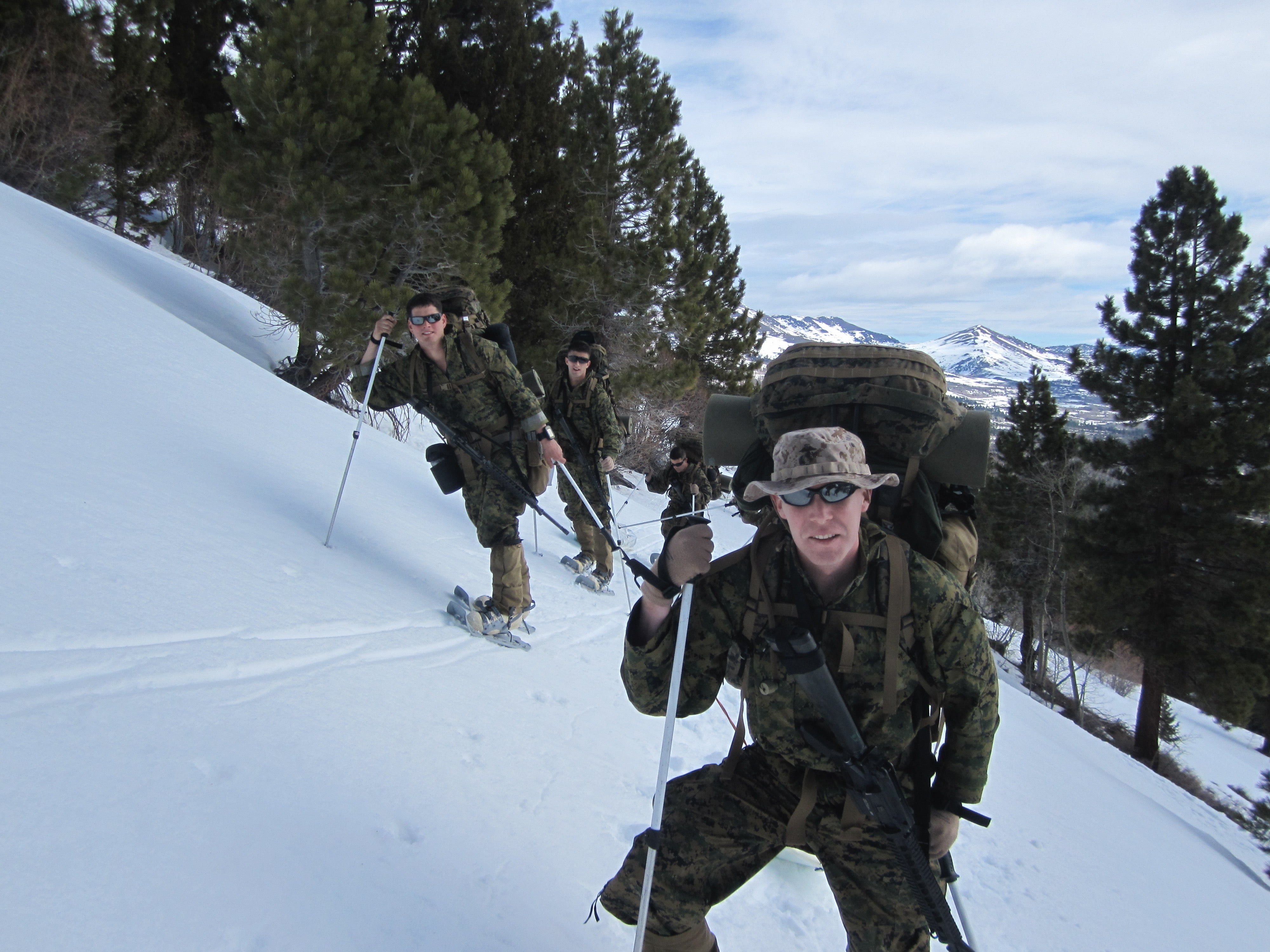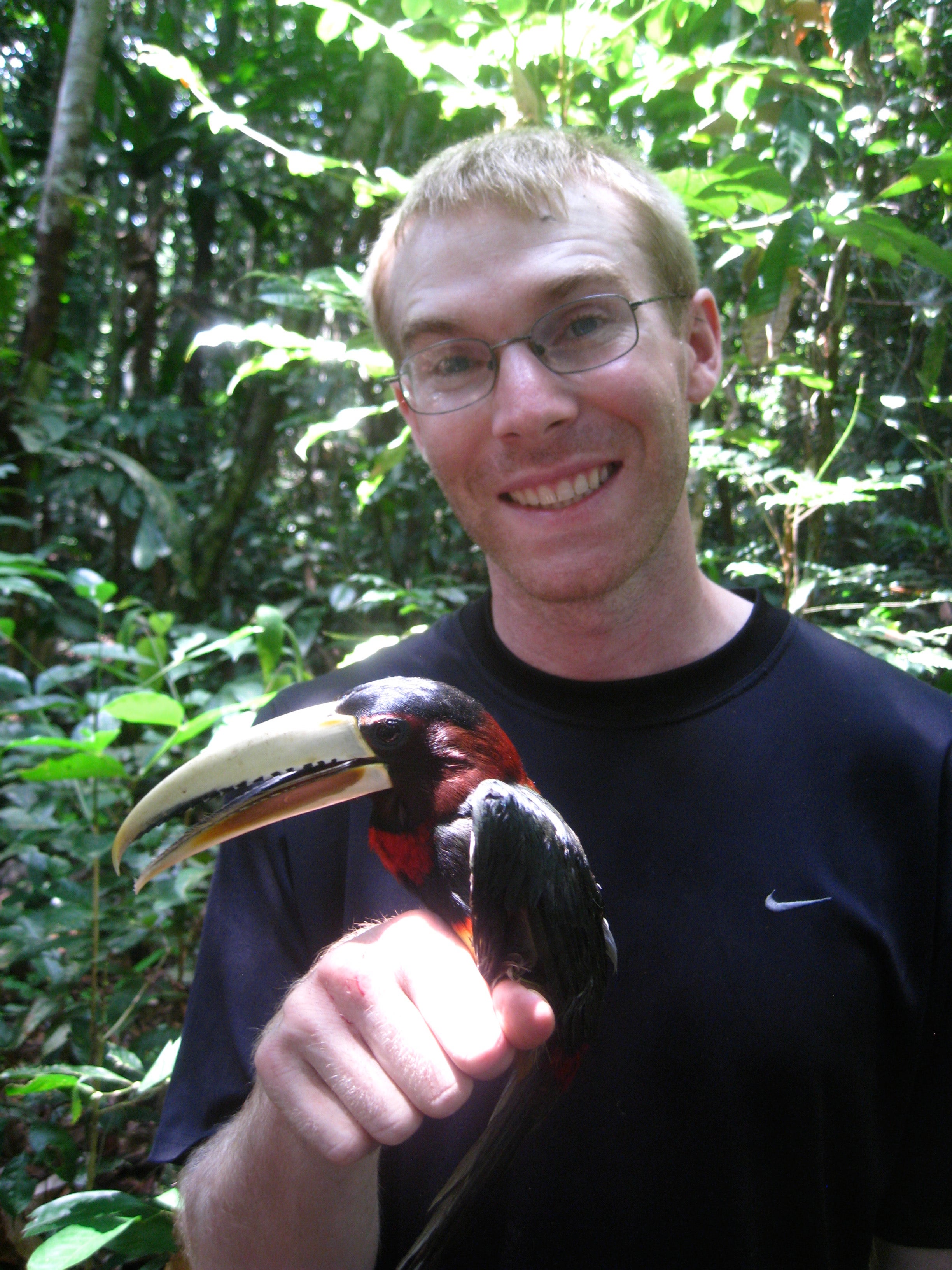Focus on the Future: James Mouton
Focus on the Future is a series that seeks to highlight the early career scientists who conduct research at the Smithsonian's National Zoo and Conservation Biology Institute. Learn about our undergraduate, graduate and post-doctoral fellows and the conservation research they are supporting through first-hand accounts and stories.
I didn’t have a “normal” path into conservation. It can often feel like there is a very strong pipeline: you go to college, you go to graduate school, you do this, you do that. It can be a step-by-step process, but my career is proof there are different paths into the conservation field.
I grew up in Palo Alto, California. It’s an area best known for technology companies. But like much of California, nature is only a short distance away. I grew up in a very nature-oriented family, so I spent a lot of time flipping through field guides and going camping and hiking when I was a kid. I also have fond memories of hunting and fishing with my grandparents and cousins during family trips to Texas.
When I attended the University of California, Davis, as an undergraduate student, I decided to pursue a major in neurobiology, physiology and behavior. I soon realized everyone else in my classes wanted to be a medical doctor, but since I was interested in the behavior of wild animals, I had no desire to be a doctor. I switched into the general biology program and sought out wildlife and ecology-based classes and job opportunities. During that time, I also enrolled in the United States Marine Corps Officer Candidates School at Marine Corps Base Quantico in Virginia and spent my summers training for the opportunity to lead Marines. My decision to join the military was partly philosophical. In the United States, we have a volunteer military. For a long time, I thought of the military as something for somebody else to do. But as I matured, I began to feel that if I expected someone else to do something as difficult as serving in combat overseas, then I should be willing to do it myself.

James and his fellow marines participate in training exercises at the Marine Corps Mountain Warfare Training Canter in Bridgeport, California.
After I graduated, I was offered and accepted a commission. I spent four years in the Marine Corps as a logistics officer for the First Battalion, 4th Marines, based out of Camp Pendleton, California. As a logistics officer, I oversaw the motor transport platoon attached to the battalion, and helped manage the distribution of supplies like food, ammunition and other materials. My unit deployed with the 15th Marine Expeditionary Unit (MEU) and went all over, places like Djibouti, Indonesia and Timor-Leste. After three years of dedicated service, it was getting to the point where I needed to decide whether I would stay in or get out. I realized I wanted to keep pursuing science, and so I chose to return to field biology.
After several field seasons of collecting data as a field technician in Arizona and Peru, I applied and was accepted to the University of Montana, where I earned my doctorate in Organismal Biology, Ecology and Evolution. Throughout my educational and scientific career, much of my research focused on predation in birds. Continuing in this vein, I began a post-doctoral fellowship at the Smithsonian’s National Zoo and Conservation Biology Institute Migratory Bird Center, this time focusing on the ways birds in Channel Island National Park in California respond to changes in predation risk.

After leaving the military, James dove back into fieldwork. He is pictured here holding an ivory-billed aracari, while working as a field technician in Peru in 2012.
I focused on island scrub-jays, which only occur on one of the eight islands, Santa Cruz Island. Scientists have been considering whether to reintroduce island scrub-jays to Santa Rosa Island, another island in the archipelago. Science tells us island scrub-jays used to live on Santa Rosa Island but were wiped out sometime between 10,000 years and 150 years ago. Island scrub-jays are major predators. They eat a lot of eggs and young birds, so I was studying the potential impacts of reintroduction and that required studying the behaviors of the native birds. Would a bird recognize that jays are predators? Would they respond appropriately, or would they not be wary of the jays? The second part of that research was to study long-term census data to try to create a model to determine how a growing population of jays could impact the ecosystem of Santa Rosa Island.
We found the other bird species on Santa Rosa readily responded to our jay model with appropriate levels of aggression. This suggests they recognize jays as predators, which is promising for jay introduction, as it shows there likely wouldn’t be significant declines in the bird populations of Santa Rosa overall if jays were reintroduced. A reintroduction program is still a long way off, but this study provides important information for park management.
Although I left the Zoo in 2023 to accept a teaching position at Ohio State University, I am continuing to study the ecology of island birds, including the island scrub-jay. My work continues to focus on how and why birds on islands evolve distinct patterns of aggression and risk-taking behaviors compared to populations on the mainland. Additionally, I will continue to help inform plans for reintroducing the island scrub-jay to Santa Rosa Island.
Reflecting on my career trajectory, I think it’s important for people to know veterans have many transferable skills, no matter what field you’re trying to get into. Skills I developed in the military like discipline, work ethic, organization and communication are important, especially in field research. Even if you have a non-traditional background, you can still make a difference in conservation.
Since leaving the National Zoo, James is now an assistant professor in the Department of Evolution, Ecology and Organismal Biology at Ohio State University.